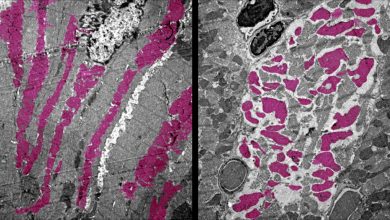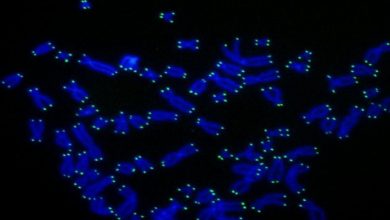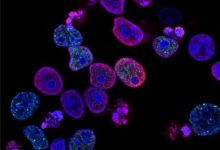
Triple-negative breast cancer is the most aggressive type of breast cancer due to lack of three main receptors on the cell surface which are estrogen receptors (ER-), progesterone receptors (PR-), and HER2 (HER2-). Receptors are like sense organ of cells which guide them in what to do. Due to the lack of receptors, it is difficult to treat them with hormone therapies which target one of these receptors.
A new study led by the team of researchers have discovered a gene which is a connection with an increased risk of triple negative breast cancer. This finding can help to improve the risk management.
To identify the risk of breast cancer, women are tested with germ-line genetic testing to evaluate their genetic changes which are often inherited from the parent.
During their study, researchers performed genetic testing on around 10901 of triple negative breast cancer patients.
They found changes in some particular genes like BARD1, BRCA1, BRCA2, PALB2, and RAD51D genes were associated with high risk for triple-negative breast cancer and greater than 20 percent lifetime risk for overall breast cancer among Caucasians. Researchers observed a similar trend among African Americans. In addition, mutations in BRIP1 and RAD51C were linked to more moderate risks of triple-negative disease.
This study led to the finding of genes which are linked with high lifetime risks of triple-negative breast cancer. The data obtained from previous studies showed that genetic variants in BARD1, BRIP1, PALB2, and RAD51C genes were common in triple-negative breast cancer as compare to normal ones. This recent study identified one more gene having a strong association with triple-negative breast cancer risk which is RAD51D.
An important implication of this study is that it can enable expanded genetic testing to identify women at risk of this disease which in turn can lead to better prevention strategies.
In the light of this study, National Comprehensive Cancer Network guidelines can be revised according to which only BRCA1/2 testing is needed to be done for diagnosing family history of breast cancer. This study help to improve understanding of gene-specific risks for triple-negative breast cancer and have the potential to establish guidelines for testing of other susceptibility genes; and women with genetic changes these genes should be able to receive better risk assessment.
“The results from our study showing that multiple genes cause an increased risk of triple-negative breast cancer should help in the clinical management of women found to have inherited mutations in these genes,” said Fergus J. Couch, PhD, one of the authors of the study.






